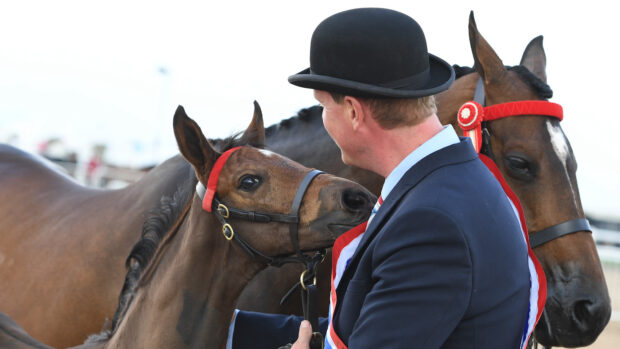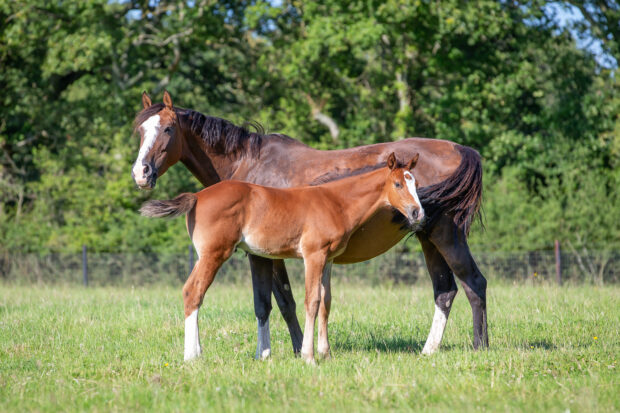The development of the foal begins right from the point of conception so it’s very important to feed a pregnant mare appropriately from this time onwards.
A 2012 study published in The Veterinary Record, by Van der Heyden et al, shows that nutrition during pregnancy has a significant effect on whether or not a foal develops osteochondrosis (OCD), which is a form of developmental orthopaedic disease.
These study results should be interpreted with caution, because no data was available about the composition or the quantity of the foodstuffs being fed to pregnant mares. But the overall conclusion supports the claims of previous research — that overfeeding of concentrates to mares during pregnancy is detrimental to the orthopaedic health of their offspring.
The key message for owners to take from this is that pregnant mares should have a high-forage diet supplemented by the correct balance of vitamins and minerals. She should not be overfed protein or starch, or allowed to become overweight.
A 500kg pregnant mare requires 190g of copper per day. Assuming that she is stabled or barn kept over the winter months, she could be consuming 10-12kgs of hay per day. This will provide 60-70mgs of copper, if the hay has a copper content of 6mgs per kg, which is rare (most of the forages analysed at Baileys are nearer to 3-4mgs per kg). Add in 2.5kgs of a high fibre feed at 35mg/kg and the mare’s total intake is between 147 and 157mgs per day. That results in a deficiency of at least 33mgs.
Minerals like copper are vitally important in a mare’s diet because they, and other essential nutrients, are needed to build the cells and tissues that create a foal. Research has shown that the foetus accumulates stores of minerals in its liver on which it can draw once it is born and growing very rapidly. Without these reserves, developmental orthopaedic disease (DOD) can occur as the foal grows.
Mares who are good doers put on too much weight if fed a stud mix or cube during pregnancy. For these types a stud balancer, which contains all the essential nutrients they need but has negligible calorie content, is ideal and should ensure that the development of the foetus is supported without promoting weight gain in the mare. Because a balancer is so concentrated, only small amounts need to be fed which is particularly useful for mares that are heavily pregnant as they often have a reduced appetite.
For mares who don’t hold their weight particularly well a stud mix or stud cube can be used, as they contain extra calories alongside the essential nutrients required. Whatever you choose it’s important to feed it at the manufacturer’s recommended levels to ensure the mare is receiving all the nutrients she and her growing foal need.



